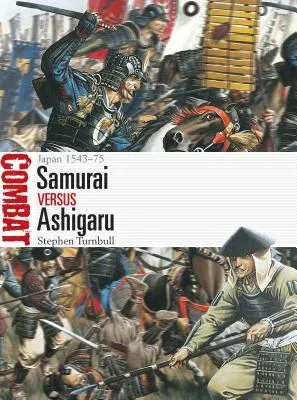Featuring full-color artwork and expert analysis, this book assesses
the status and abilities of two groups of warriors who fought one
another during the civil wars of Japan's Age of Warring States.
During the 16th century, Japan underwent a military revolution,
characterized by the deployment of large armies, the introduction of
firearms, and an eventual shift towards fighting on foot. This study
encapsulates these great changes through an exploration of the
experience at the ground of three key battles, Uedahara (1548), Mikata
ga Hara (1573), and Nagashino (1575), in which two very different types
of warrior were pitted against each other. On one side were samurai, the
elite aristocratic knights whose status was proclaimed by the possession
and use of a horse. On the other side were the foot soldiers known as
ashigaru, lower-class warriors who were initially attendants to the
samurai but who joined the armies in increasing numbers, attracted by
loot and glory. These two types of warrior battled for dominance across
the period, changing and adapting their tactics as time went on.
In this title, the development of the conflicts between samurai and
ashigaru is explored across three key battles, where highly trained
elite mounted samurai of the Takeda clan faced ashigaru at very
different stages in their development. The profound and irreversible
changes that took place as the conflicts progressed are analyzed in
detail, culminating in the eventual incorporation of the ashigaru as the
lowest ranks of the samurai class in within the standing army of
Tokugawa Japan.

